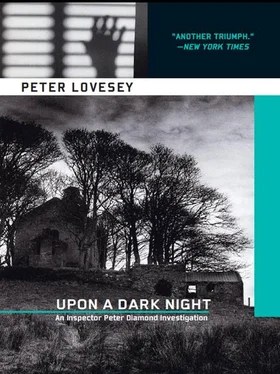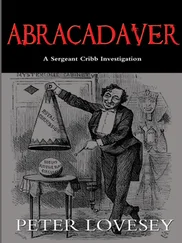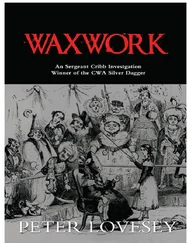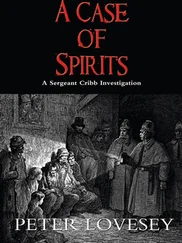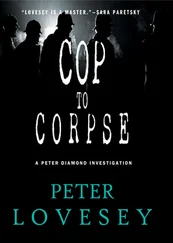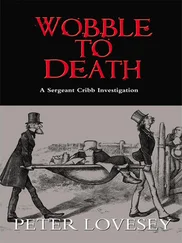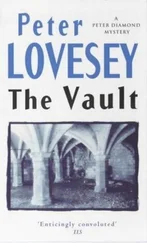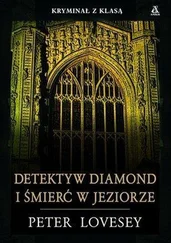Ada said, ‘That was my next question.’
‘Maybe,’ he said slyly, ‘but I asked it first.’
‘He’s a fisherman?’ Ada hazarded.
‘No.’
‘He drinks like a fish?’
He chuckled. ‘I like it, and it’s true, but that ain’t the reason. I told you he were mayor of Bradford once. Proper proud of that, he is. That fish is the official fish of Bradford. Gudgeon.’
‘Like a symbol of the town?’
‘Correct. You’ve heard the saying, haven’t you, “You be under the fish and over the water”?’
‘Can’t say I have,’ said Ada. ‘Like a riddle, is it?
Rose asked what it meant.
‘Local people know it. You know the Bradford town bridge, anywhiles?’
‘Yes.’
Even Rose knew that, just as she knew the names of the Rolling Stones. The medieval nine-arched bridge over the Avon is one of the more famous landmarks in the West Country. Generations of artists and photographers have captured the quaint profile with the domed lock-up (once a chapel) projecting above the structure.
‘On top of the lock-up, there’s a weathervane in the form of a gudgeon. So if you had some cause to spend the night in there…’
‘We get the point,’ said Ada. ‘Mr Dunkley-Brown is proud of his time as mayor, and that’s all we need to know, except where to find him.’
‘No problem there,’ said the driver.
He turned up Alfred Street and stopped in the Market Place opposite the Westbury Hotel, a Georgian red-brick building that looked well up to catering for an ex-mayor. Obviously it had an identity problem, because the gilt and wrought-iron lettering over the door still proclaimed it as the Lopes Arms and there was a board with a coat of arms to affirm it. Another board claimed a history dating back to the fourteenth century and yet another gave it four stars from the English Tourist Board. Mindful of a possible tip, the driver took the trouble to get out and look inside the bar. ‘What did I tell you, ladies? Table on the left, party of six. He’s the little bald bloke and his missus next to him.’
Ada heaved herself out of the back seat and thanked the driver. ‘Do you happen to have a card? We might need to call you again.’ She explained later to Rose that asking a driver for his card was the ploy she used when unable to afford a tip. It saved embarrassment because there was just the suggestion that the tip was being saved for the second run, which never happened.
The interior bore out the promise of gentility: a leather-clad bar, thick, patterned carpet, dark wood panelling and framed Victorian cartoons by Spy. The Dunkley-Browns looked well set for a long session, seated with four others in a partitioned section a step up from the main bar, their table already stacked with empties. Although their conversation didn’t quite carry, the bursts of laughter did.
Rose would have started by going to the liveried barmaid and ordering something. Ada was more direct. She stepped up to the table where the Dunkley-Browns were and said, ‘Pardon me for butting in, but you are the former Mayor and Mayoress of Bradford, aren’t you?’
Ned Dunkley-Brown seemed to grow a couple of inches. Bright-eyed, short and with clownish clumps of hair on either side of his bald patch, he appeared friendly enough. ‘As a matter of fact we are. Should we know you?’
Mrs Dunkley-Brown, beside him, cast a sharp eye over the newcomers. She was probably twenty years younger than her husband, with black, shoulder-length hair. She must have enlivened civic receptions in Bradford on Avon.
‘No, we’re visitors here,’ said Ada. ‘Ada Shaftsbury and – what do you call yourself, petal?’
‘Rose.’
‘She’s Rose. Our driver pointed you out.’
‘So you drove here?’ said Dunkley-Brown, simply being civil with these people who may have appeared odd, but who had earned his approval for reminding his drinking companions that he had once been the top dog in Bradford on Avon.
‘Not all the way,’ said Ada. ‘We took the train from Bath. We don’t own a handsome car like yours.’
‘You’ve seen my Bentley, have you?’
Someone in the party made some aside and the women – Mrs Dunkley-Brown excepted – giggled behind their hands.
‘It’s a motor you’d notice anywhere, a gorgeous runabout like that,’ Ada said, unfazed. ‘Specially with the figurehead.’
‘The fish. You know about the fish?’
‘The gudgeon of Bradford.’
‘You are well-informed. Look, why don’t you ladies join us? We’re just having a few drinks with our friends here. What will you have?’
‘A few private words will do. We didn’t come to crash your party.’
‘ Private words?’ said Dunkley-Brown.
‘It’s important,’ said Ada.
He became defensive. ‘But I’ve never met you before.’
Mrs Dunkley-Brown said, ‘Just who are you?’
‘I said – Ada Shaftsbury. We’d also like a word with you in a moment.’
Rose decided to soften the approach. Ada’s tone was becoming abrasive. ‘It’s for my sake, actually. It’s true you haven’t met Ada before, but you may recognise me.’
The Dunkley-Browns looked at her fully and she was certain there was a moment of recognition. To her astonishment the husband said immediately in a hard, clipped tone, 77
‘No, my dear. Never once clapped eyes on you. Obviously you’re mistaken.’
Ada, braced for battle, said, ‘Mistaken about your motor, are we?’
‘Anyone could have told you about my car…’ Dunkley-Brown started to say. Then he interrupted himself and said, ‘All right, you’re obviously mistaken, but for the sake of some peace, I’ll talk to you outside. Fair enough?’
‘Do you want me to come, Ned?’ his wife asked.
Ada spoke up as if the offer were addressed to her. ‘Thanks, but we’d rather talk to you later.’
She said, ‘You sound like the police. What are we supposed to have done? Robbed a bank?’
‘Gordon Bennett, we’re nothing to do with the police,’ said Ada, speaking from the heart.
Dunkley-Brown stood up. ‘Let’s sort this out, whatever it is. I’ll step outside with you, but I’m not having my wife’s evening disturbed.’
Ada led the way and they stood in the sparse evening light in the Market Place while Rose explained the connection. She set out the facts without guile, admitting that she had her information second-hand from an elderly woman, fully expecting her frankness to be matched by Dunkley-Brown’s. He heard it all in silence, his eyes giving no hint of involvement.
Finally Rose asked him, ‘Well, was it your car she saw? Did you bring me to the Hinton Clinic that evening?’
Dunkley-Brown overrode the last word. ‘Absolutely not. You’re mistaken. I was nowhere near Bath last Monday night and neither was my car. We spent the evening in Westbury. I can’t help you.’
Ada couldn’t contain herself. ‘But the car was seen, a big white car with a fish on the bonnet. How many cars like that are there in these parts? Have you ever seen another one?’
He would not yield. ‘There’s no reason why someone else shouldn’t have one.’
‘The driver was a bald bloke.’
Ada spoke this as a statement of fact without regard to any sensitivity Dunkley-Brown may have had about his appearance. He didn’t care for it at all. ‘I’ve heard more than enough of this. I’ve made myself clear. I can’t help you. Now allow me to get back to my friends.’
Ada was blocking his route to the bar door.
She remained where she was. However, she said with more tact, ‘If you took the trouble to drive her to hospital, you must have been concerned.’
He said, ‘Will you stand out of my way?’
‘Please. We’re not blaming you for anything,’ said Rose. ‘I just want to know what happened to me that night. You’re the best chance I have – the only chance.’
Читать дальше
